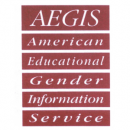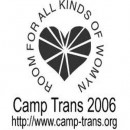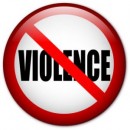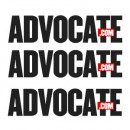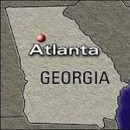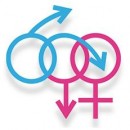AEGIS Advisory Board (1992)
The nonprofit AEGIS maintained an interdisciplinary advisory board from 1991 through 1998. Members were distinguished in fields that were important to transsexualism and transsexuals and were consulted on policy issues and the advisories we periodically released.
Read MoreAEGIS Fact Sheet (1993)
The American Educational Gender Information Service, Inc. (AEGIS) is a 501(c) (3) nonprofit clearinghouse for transsexual and transgender issues. AEGIS actively supports the professionalization and standardization of services for transgendered persons; promotes non-judgmental, non-discriminatory treatment of persons with gender issues; advocate respect for their dignity, their right to treatment, and their right to choose their gender role; helps transgendered persons make reasoned and informed decisions about the ways in which they will live their lives; and provides educational materials, information, and referrals.
Read MoreAEGIS Provides Protective Shield (1990)
I believe this text from the community newsletter Renaissance News reproduces the text of the press release announcing AEGIS’ formation.
Read MoreAEGIS Given 501(c)(3) Nonprofit Status by IRS (1993)
In a letter dated 13 July, 1993. the Internal Revenue Service notified AEGIS of exemption from Federal income tax as a 501(c) (3) organization.
Read MoreRoberts Named to AEGIS Advisory Board (1992)
The late JoAnn Roberts was a founder of Renaissance Education Association, owner of Creative Design Services, and served as board chair of the nonprofit American Educational Gender Information Service Inc. Here’s an announcement of her appointment to the AEGIS Advisory Board.
Read MoreCodename ANGIE: The AEGIS National Gender Identification Explanation Card (1991)
In 1991 transsexual and transgendered people were routinely arrested when identified on the street. In some places anti-crossdressing or anti-masquerade laws were still on the books—and even when they weren’t, police officers would sometimes haul in transpeople on general principal. Happily, this situation was rapidly changing, and, after discussion with others at the IFGE conference, AEGIS decided not to release the ANGIE card.
Read MoreIFGE Consistently Disappoints (1998)
In 2011 the International Foundation for Gender Education quietly drained the “never to be touched” Winslow Street Fund of its approximately $100,000 USD balance and effectively disappeared as an organization. I called attention to this with a press release and published it simultaneously on this website and Transgender Forum. That wasn’t the first time IFGE had violated public trust by dipping into the Winslow Street Fund. I covered an early escapade in 1998 in AEGIS Online News—first as news, and then with an editorial.
Read MoreViolence Against Transgendered Persons: An Unrecognized Problem (1992)
In 1991 and 1992 the nonprofit American Educational Gender Information Service campaigned against violence toward transgendered and transsexual people. This was years before Remembering our Dead and the Day of Remembrance. No one was talking about the problem. We did.
Read MoreDo Transgender Issues Affect the Gay Community? (1992)
Margaux Schaffer and I wrote this article in response to the murders in Atlanta of three crossdressed women of color in Atlanta in as many months.
Read MoreAtlanta Killings Require Community Response (1992)
The murders of three transgendered persons in Atlanta during a one-month period is a matter of grave concern. Whether or not the killings are related, they must be stopped. We hope and trust law enforcement officials will take immediate and thorough action to find the perpetrator(s) and put a stop to these tragic deaths.
Read MoreSome Notes on Access to Medical Treatment (1995)
We are convinced, after fielding thousands of calls over a period of five years, that free access to medical treatment would be disastrous. We are equally convinced that there should be a clear, non-obstructionistic process to get access to these treatments, and that transsexual people should not be singled out for special restrictions that are not given to other less marginalized groups.
Read More
